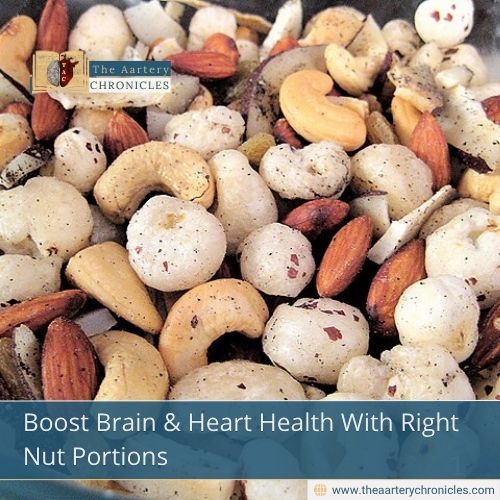

Boost Brain & Heart Health With Right Nut Portions
Dry fruits like almonds, walnuts, cashews, and pistachios are often praised as “superfoods” and rightly so. They’re packed with healthy fats, protein, vitamins, and minerals that support your heart, brain, bones, and metabolism. However, when it comes to these nutrient-dense foods, portion control is crucial.
Because dry fruits are high in calories, eating too much can lead to unwanted weight gain, while eating too little can prevent you from getting enough essential nutrients. Understanding how many dry fruits to eat daily helps you strike the perfect balance so you can boost your health without overdoing your calorie intake.
The Health Benefits of Eating Dry Fruits Every Day
1. Heart Health: The healthy monounsaturated and polyunsaturated fats in almonds, walnuts, and cashews help lower bad cholesterol (LDL) and support good cholesterol (HDL), which in turn reduces the risk of heart disease.
2. Brain Function: Walnuts, rich in omega-3 fatty acids, and almonds, loaded with vitamin E, improve memory, concentration, and overall brain performance.
3. Bone and Muscle Strength: Magnesium, calcium, and plant-based protein found in nuts help maintain strong bones and support muscle repair after physical activity.
4. Energy and Metabolism: Dry fruits provide slow-releasing energy, preventing sudden drops in blood sugar levels and curbing unhealthy cravings.
5. Immunity and Anti-Ageing: Packed with antioxidants and essential vitamins, dry fruits help fight oxidative stress, boost your immune system, and promote youthful, glowing skin.
How Much Dry Fruit Should You Eat?
According to nutrition experts, a healthy adult should consume around 20–30 grams of mixed dry fruits per day, which equals roughly a small handful. This amount provides the right balance of nutrients enough to enhance health without excessive calories.
You can enjoy them as mid-day snacks, sprinkle them over salads, or blend them into smoothies. Nutritionist Leena Mahajan (@leenamahajan) recently shared on Instagram that for optimal benefits, one should include a few almonds and walnuts daily as part of this 20–30 gram serving.
How to Adjust Dry Fruit Portions for Specific Health Conditions
While a standard serving suits most adults, those with certain health conditions may need to tailor their intake:
- High Blood Pressure: Choose unsalted nuts to avoid excess sodium, which can raise blood pressure.
- Diabetes: Be cautious with sweetened or dried fruits, as their natural sugars can spike blood glucose levels.
- Kidney Problems: Limit nuts like almonds and cashews that are high in potassium and phosphorus to reduce kidney strain.
Customising how many dry fruits to eat daily ensures you enjoy all the nutritional perks while keeping your health needs in check.
Conclusion
Dry fruits are small but mighty when it comes to nutrition. Consuming about 20–30 grams daily, especially almonds and walnuts, can strengthen your heart, sharpen your mind, and boost your overall wellness. Just remember: moderation is the key. Enjoy your daily handful mindfully to reap the maximum benefits without adding unnecessary calories.
Source: Inputs from various media Sources
I’m a pharmacist with a strong background in health sciences. I hold a BSc from Delhi University and a pharmacy degree from PDM University. I write articles and daily health news while interviewing doctors to bring you the latest insights. In my free time, you’ll find me at the gym or lost in a sci-fi novel.
- Priya Bairagi
- Health News and Updates,People Forum
- 5 November 2025
- 22:00








